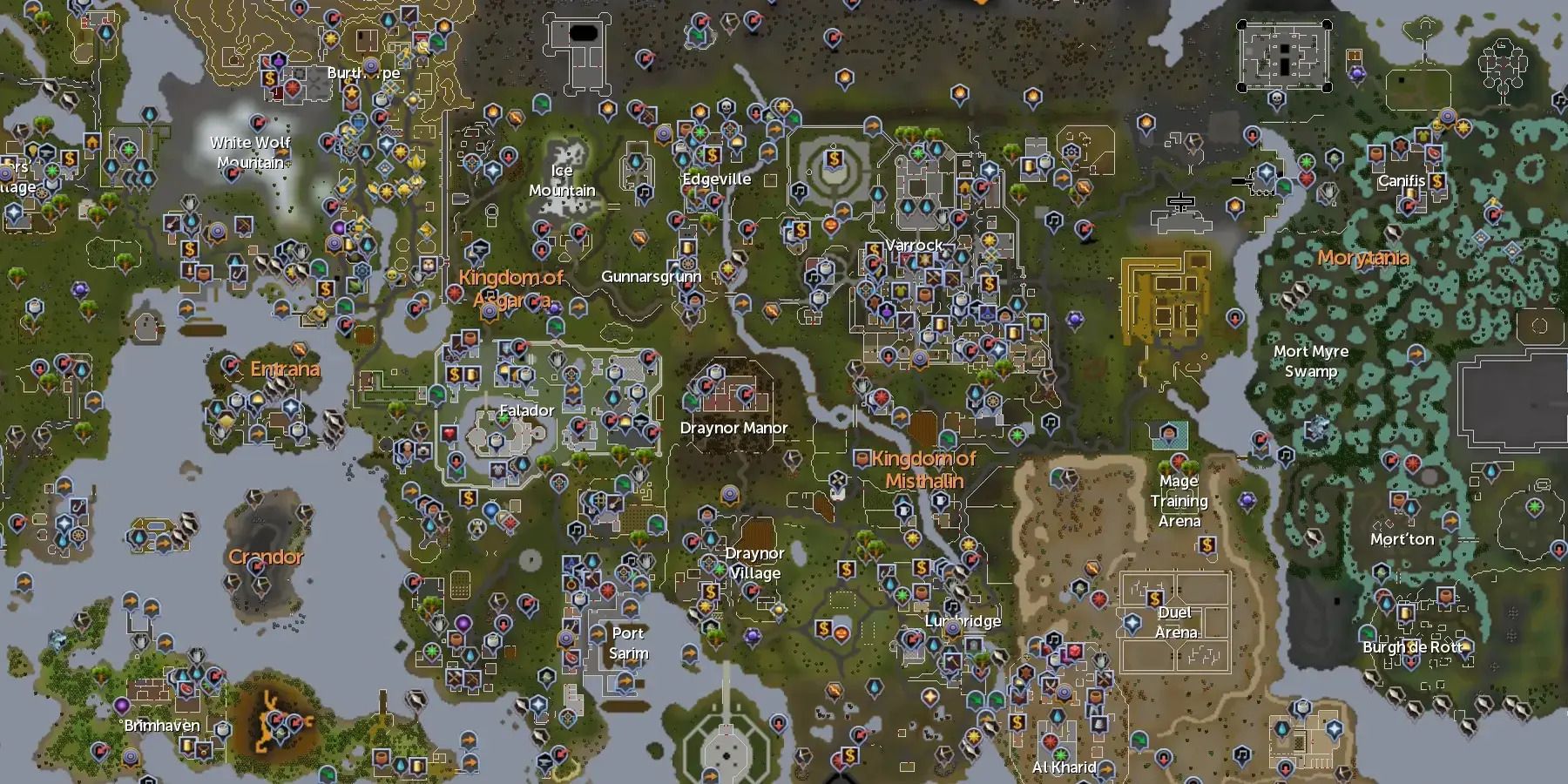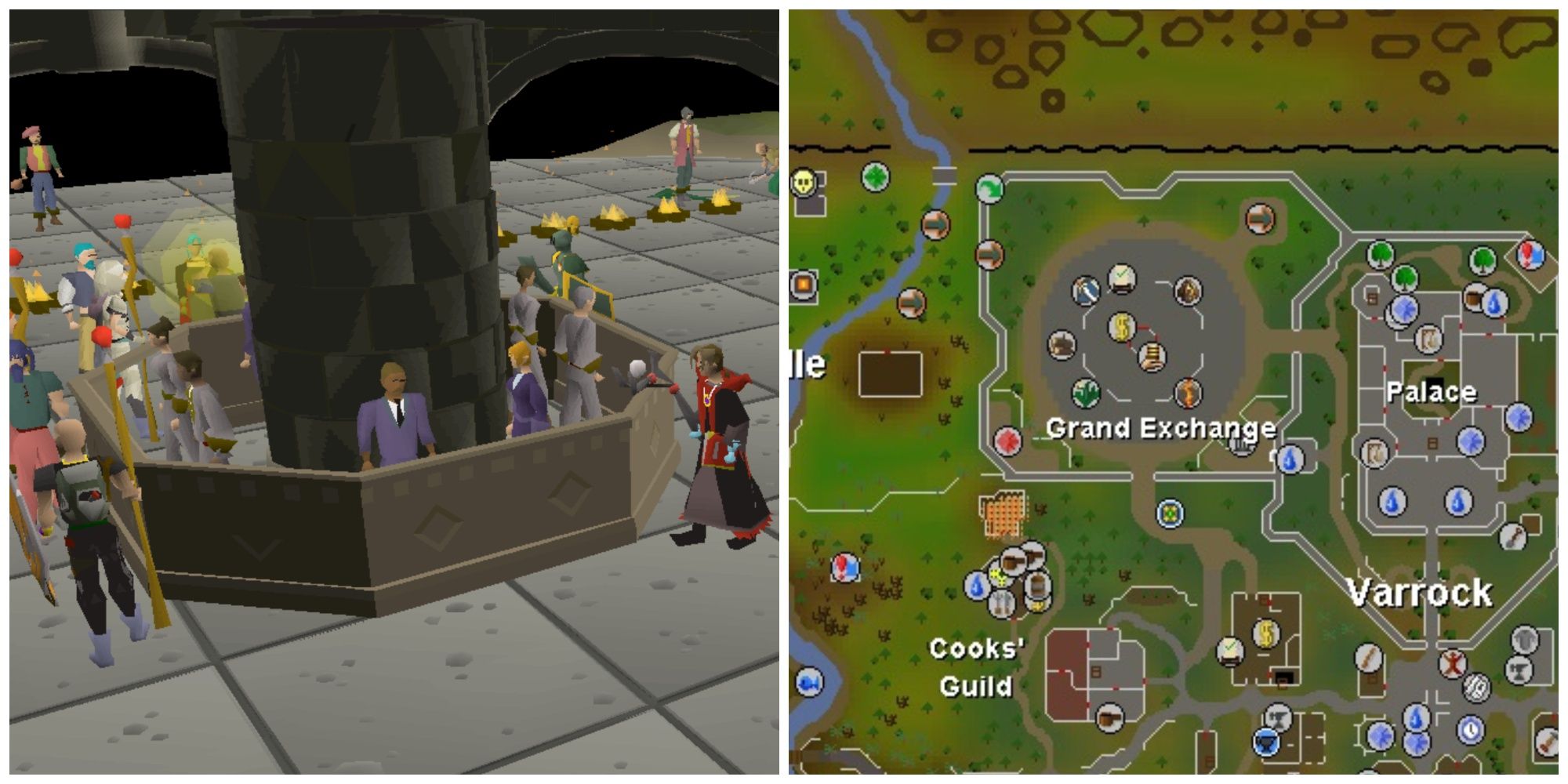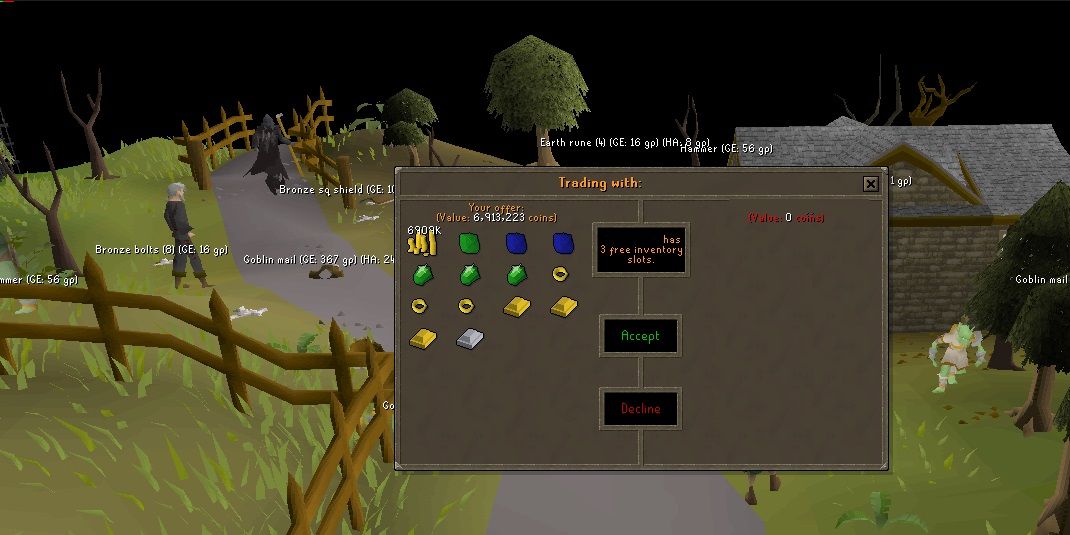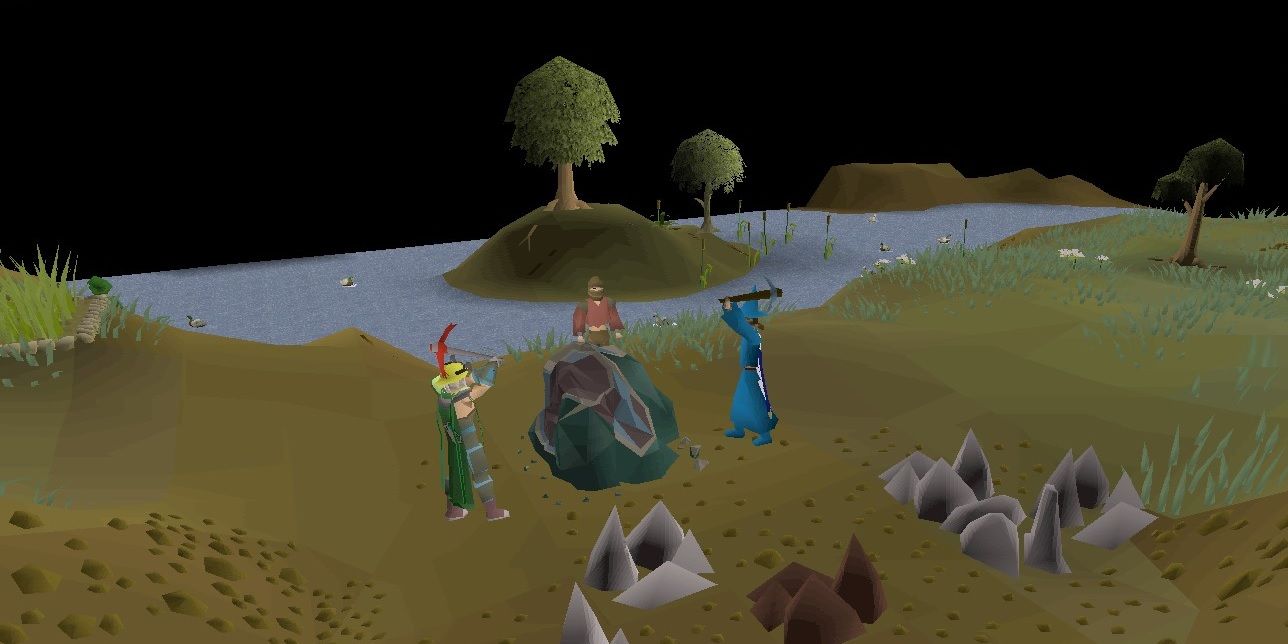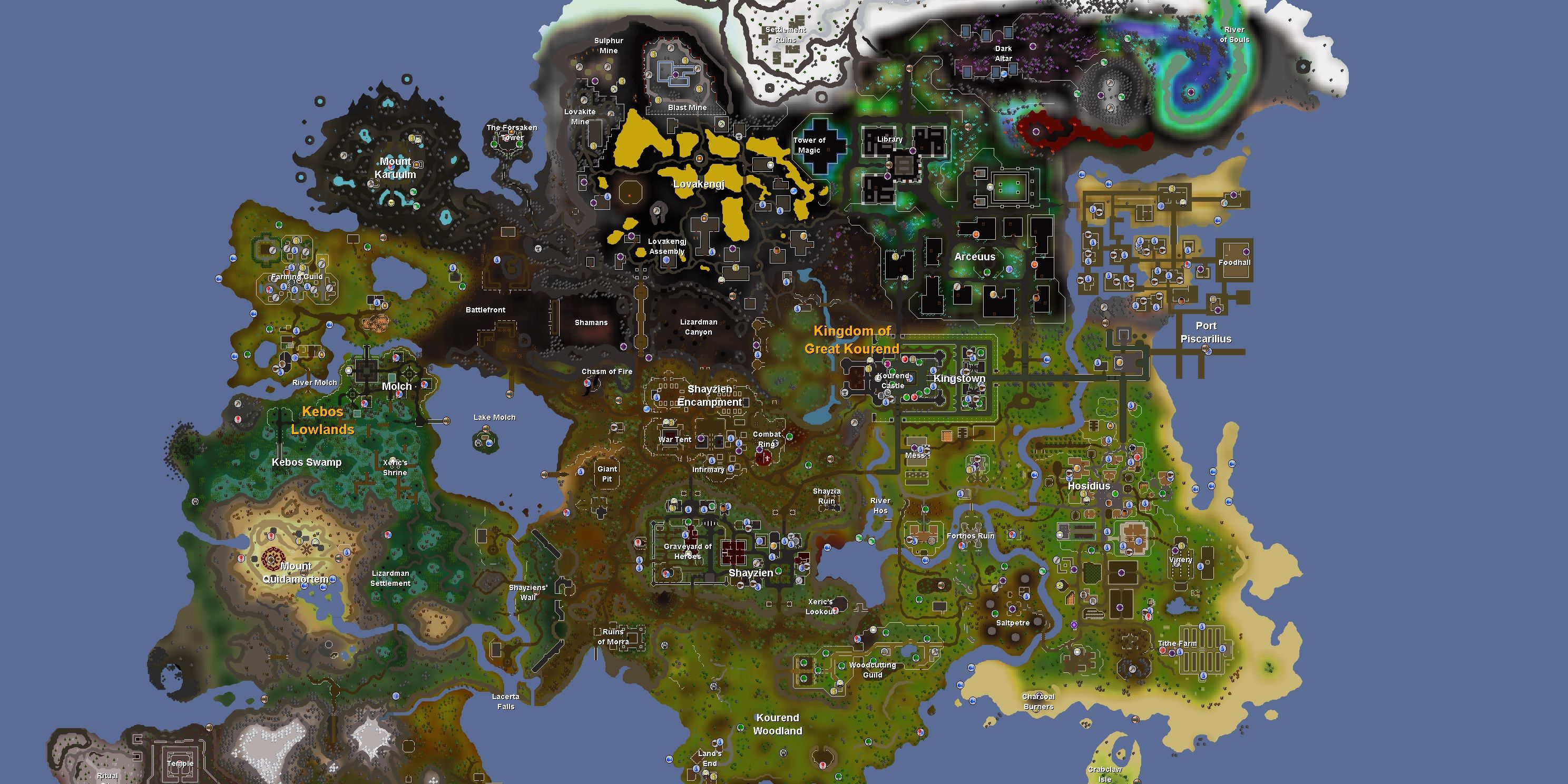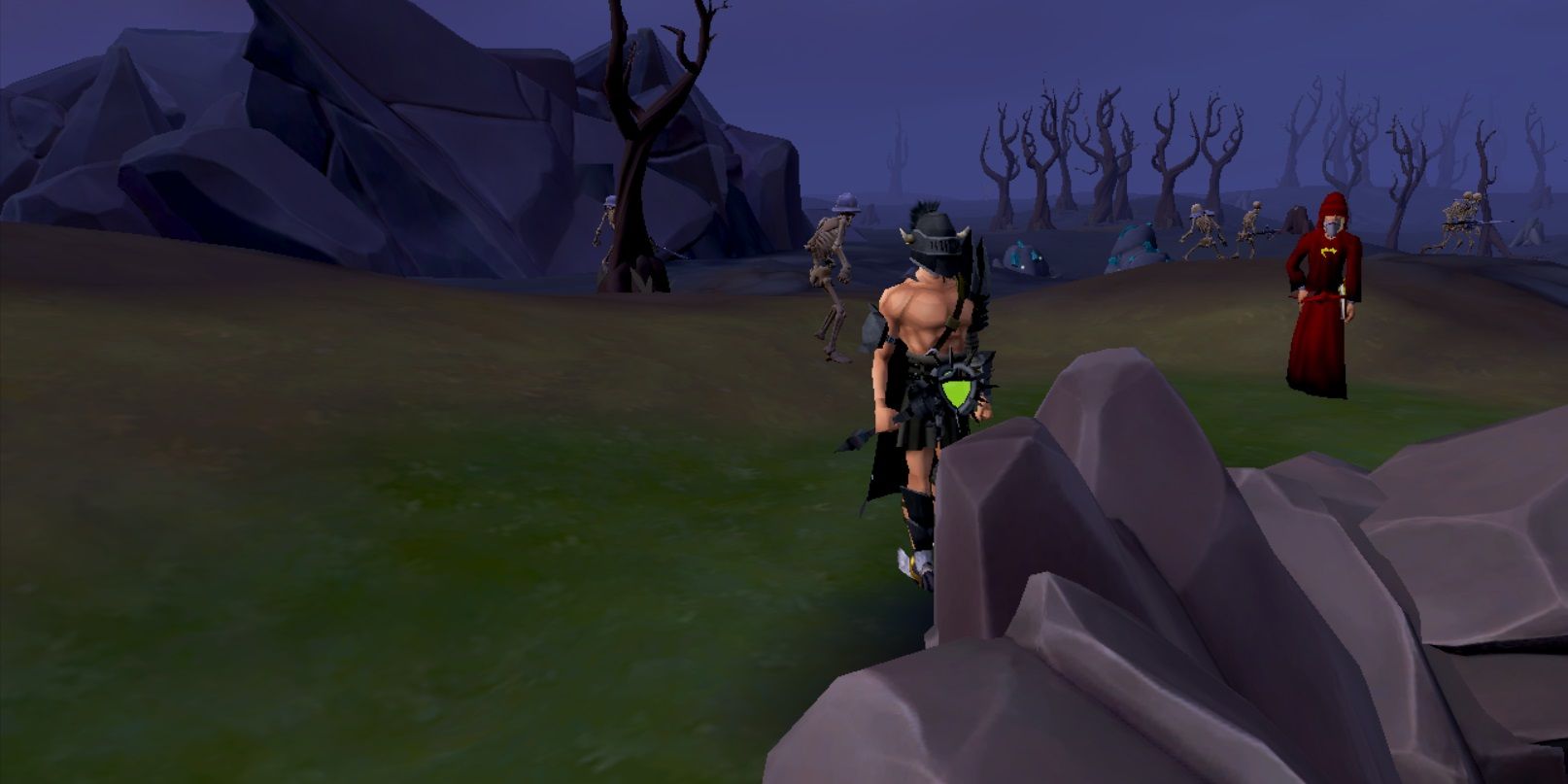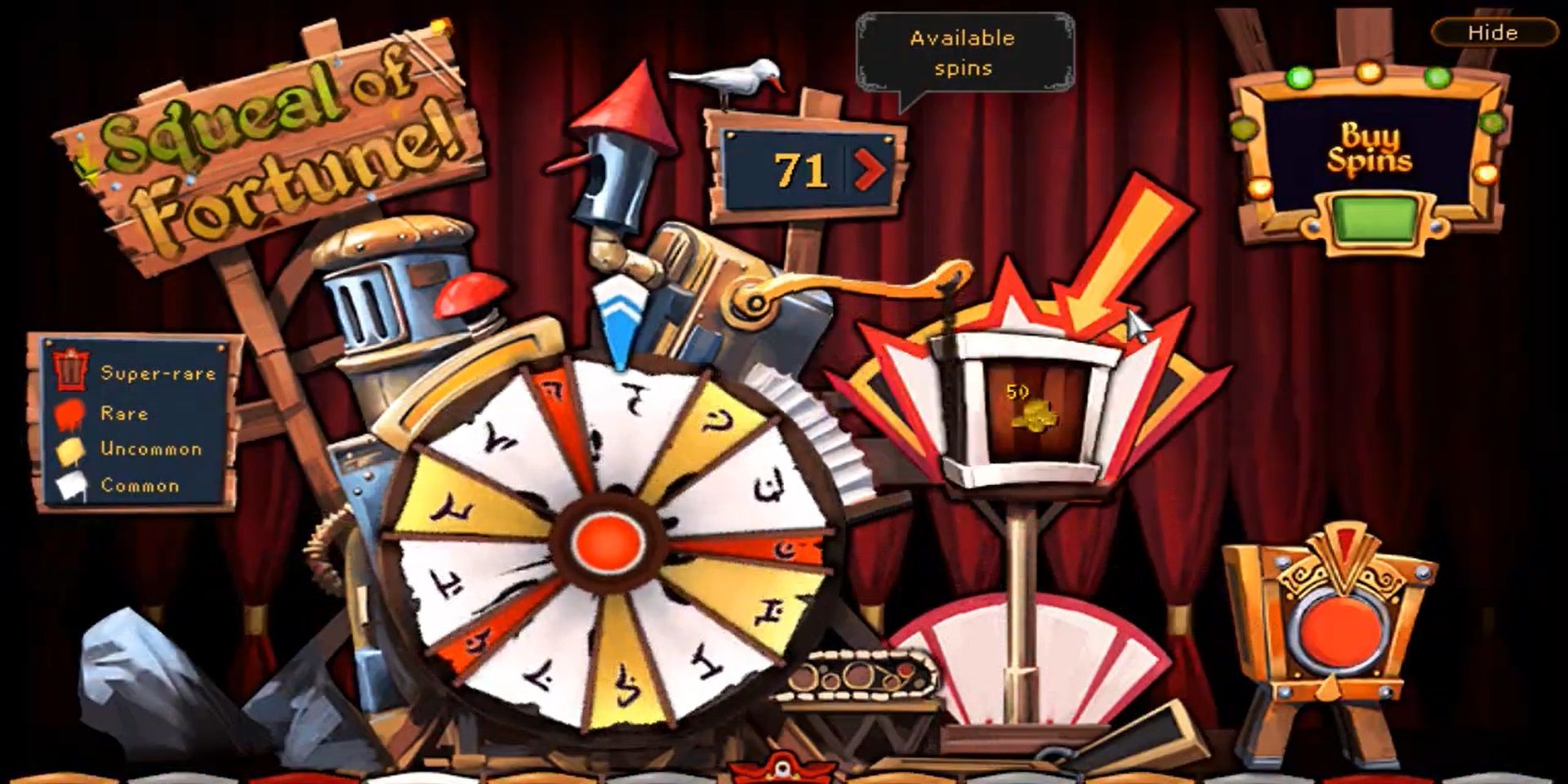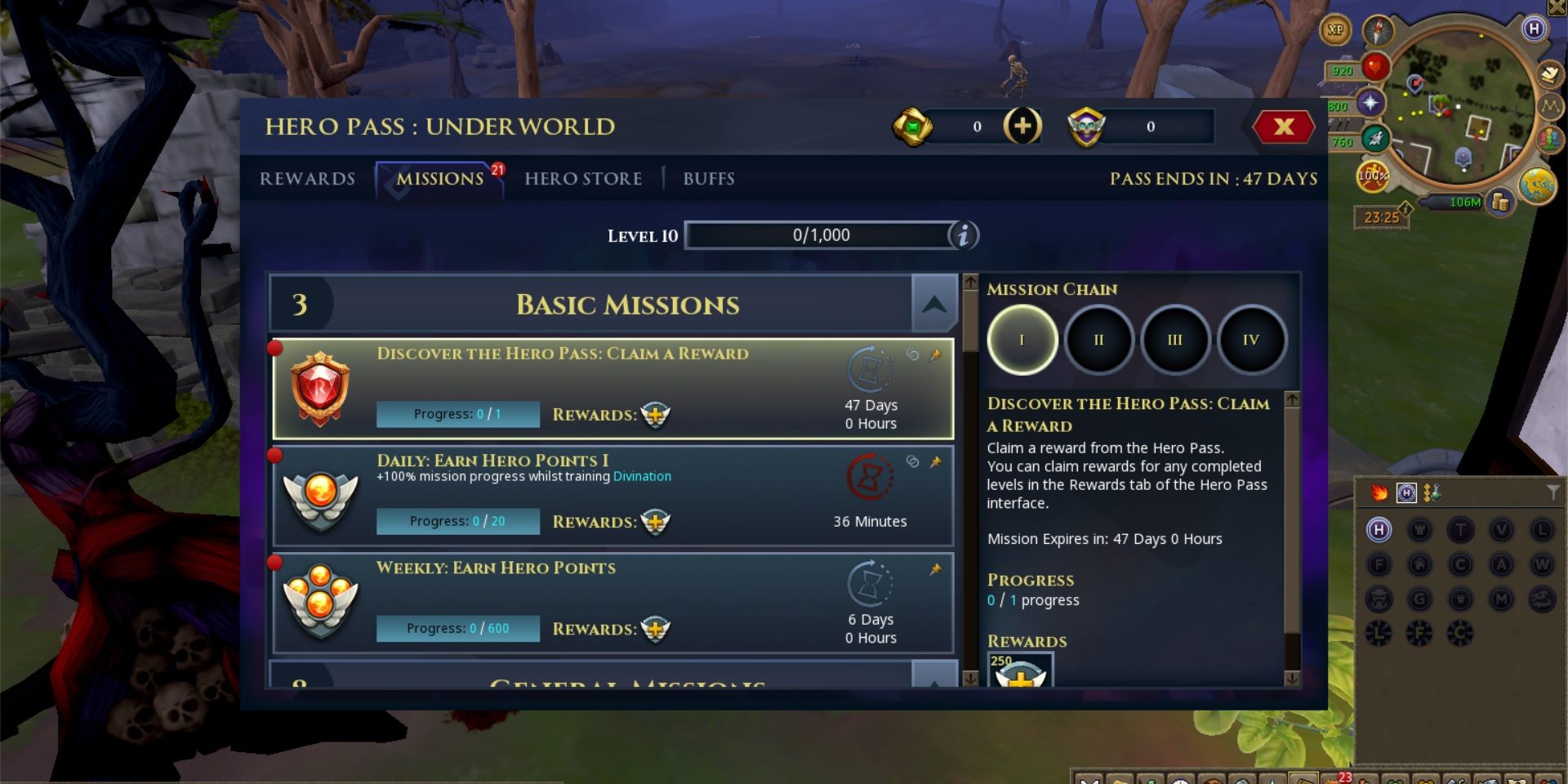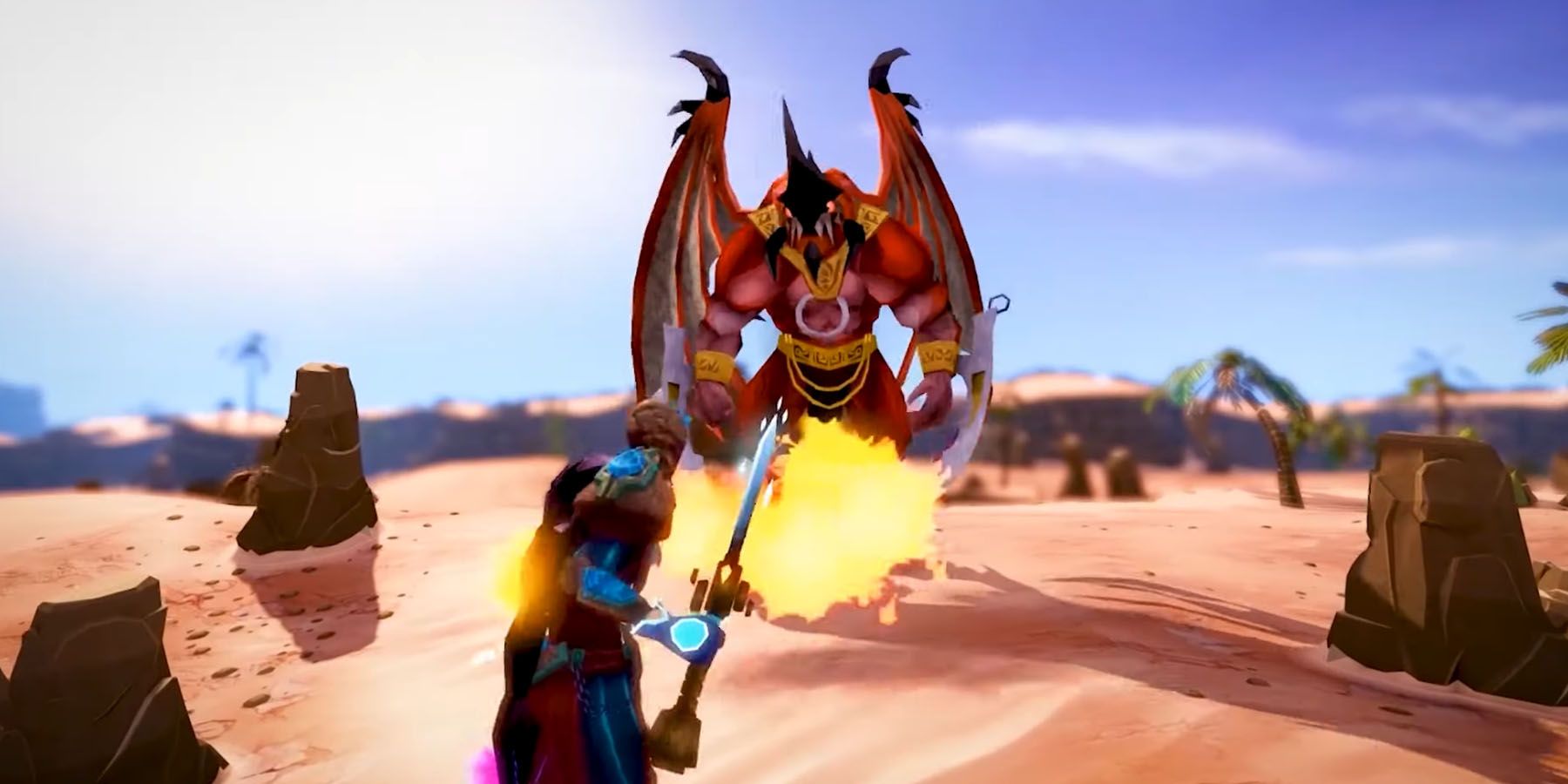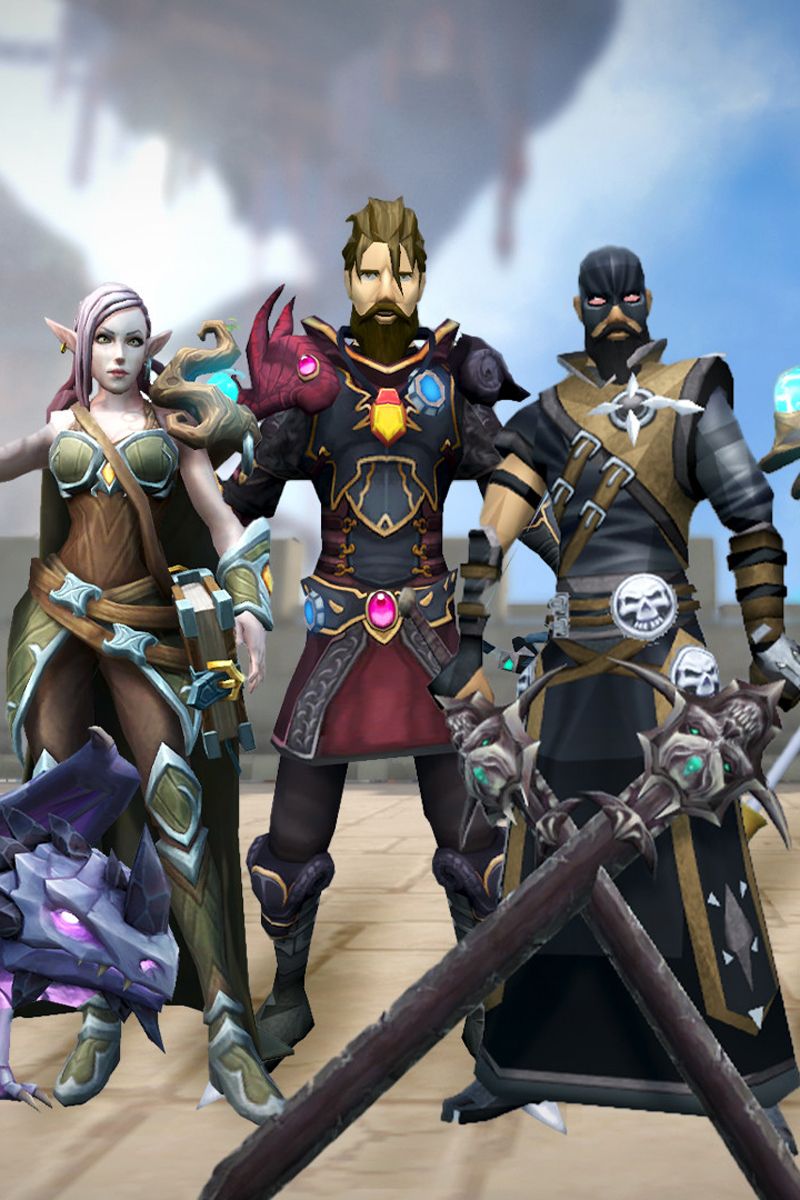Highlights
- The introduction of the Grand Exchange in 2007 forever changed the way players traded in RuneScape, but some still long for the "Wild West" era of individual trading.
- Attempts to combat real-world trading in the game's economy have resulted in frustration and annoyance for innocent players.
- The Evolution of Combat update in 2012, which changed the combat mechanics, led to riots, mass quitting, and a significant loss of player trust.
In 1998, Andrew Gower created DeviousMUD, a basic multiplayer RPG that served as the earliest iteration of the enduringly popular RuneScape. RuneScape Classic was released in 2001, RuneScape 2 in 2004, and RuneScape 3 in 2013, all of which substantially updated or replaced their preceding iterations.
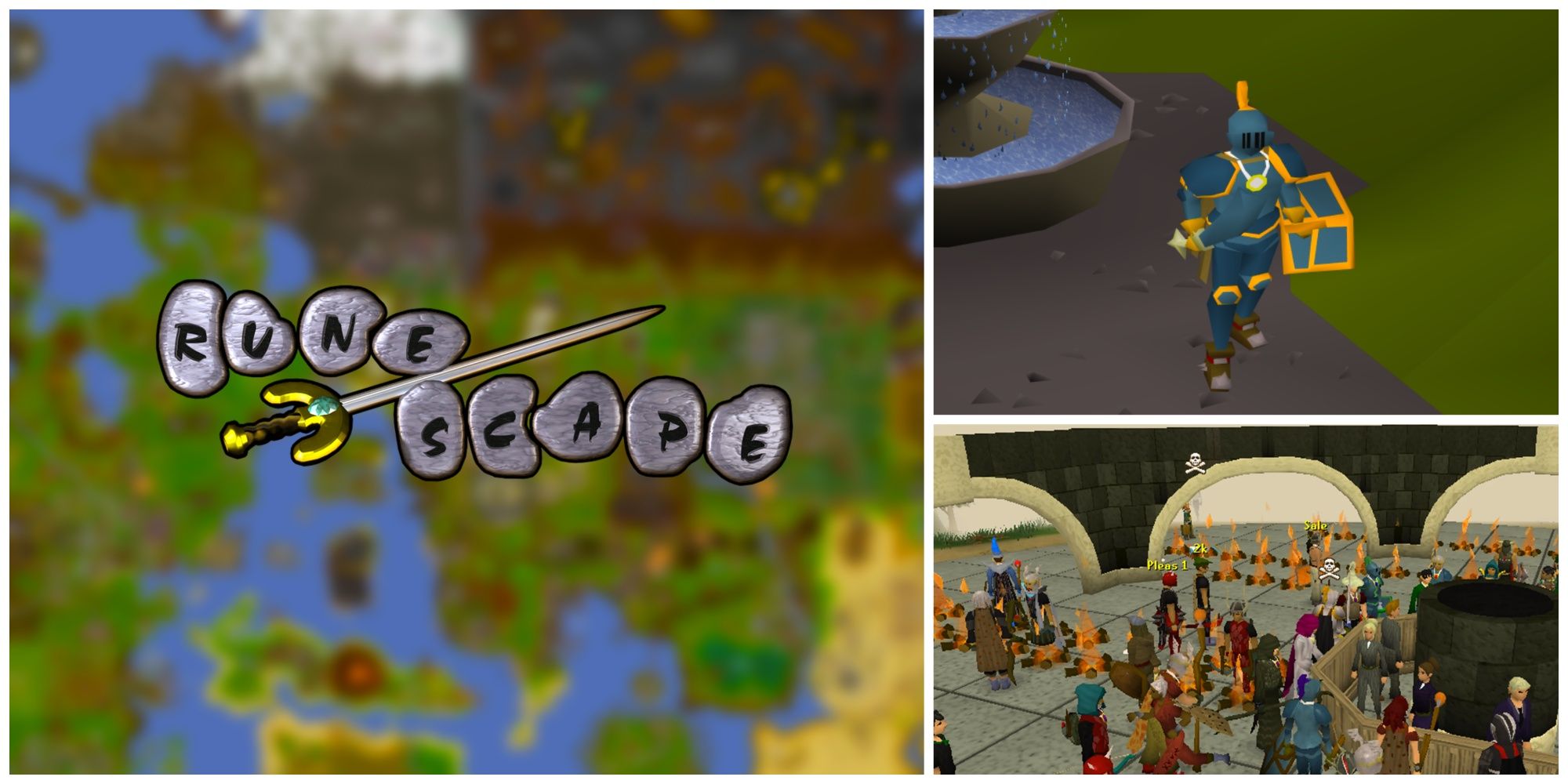
Old School Runescape: 8 Things To Do Before Becoming A Member
Stick with completing these tasks in f2p before spending your hard-earned gold on that precious bond!
In 2016, a retro iteration, Old School RuneScape, went live. Since then, both versions of the game have received constant changes and updates. With over a quarter of a century of combined development, it's unsurprising that some of the numerous updates to both games have proven divisive. The most controversial of these have split the player base, sent tremors through the in-game economy, and even threatened to sink the game entirely.
8 The Grand Exchange
November 26, 2007
The Grand Exchange has caused controversy on multiple occasions. The idea is simple: it offers a centralized service for players wishing to efficiently trade with other players. Before the introduction of the Grand Exchange in 2007, all trade between players was unregulated and handled on an individual basis. Varrock West Bank and Falador Park were bustling markets, and the smartest players were able to build up fortunes by buying low and selling high.
As such, the arrival of the Grand Exchange forever altered the way that players interacted and hustled, and some players remain nostalgic for that Wild West era of trading. The version of the game released as Old School RuneScape in 2013 lacked the Grand Exchange, and there was serious debate within the player base about whether to add it. The vote passed only narrowly—and there are still those in the community who wish that it had failed.
7 Trade Restrictions
January 2, 2008
RuneScape's economy is an integral part of both versions of the game. Although there are Ironmen who eschew trade with other players to forge their own paths, most adventurers are constantly buying or selling items. For some players, trading is the name of the game, and some closely monitor market trends to turn a major profit.
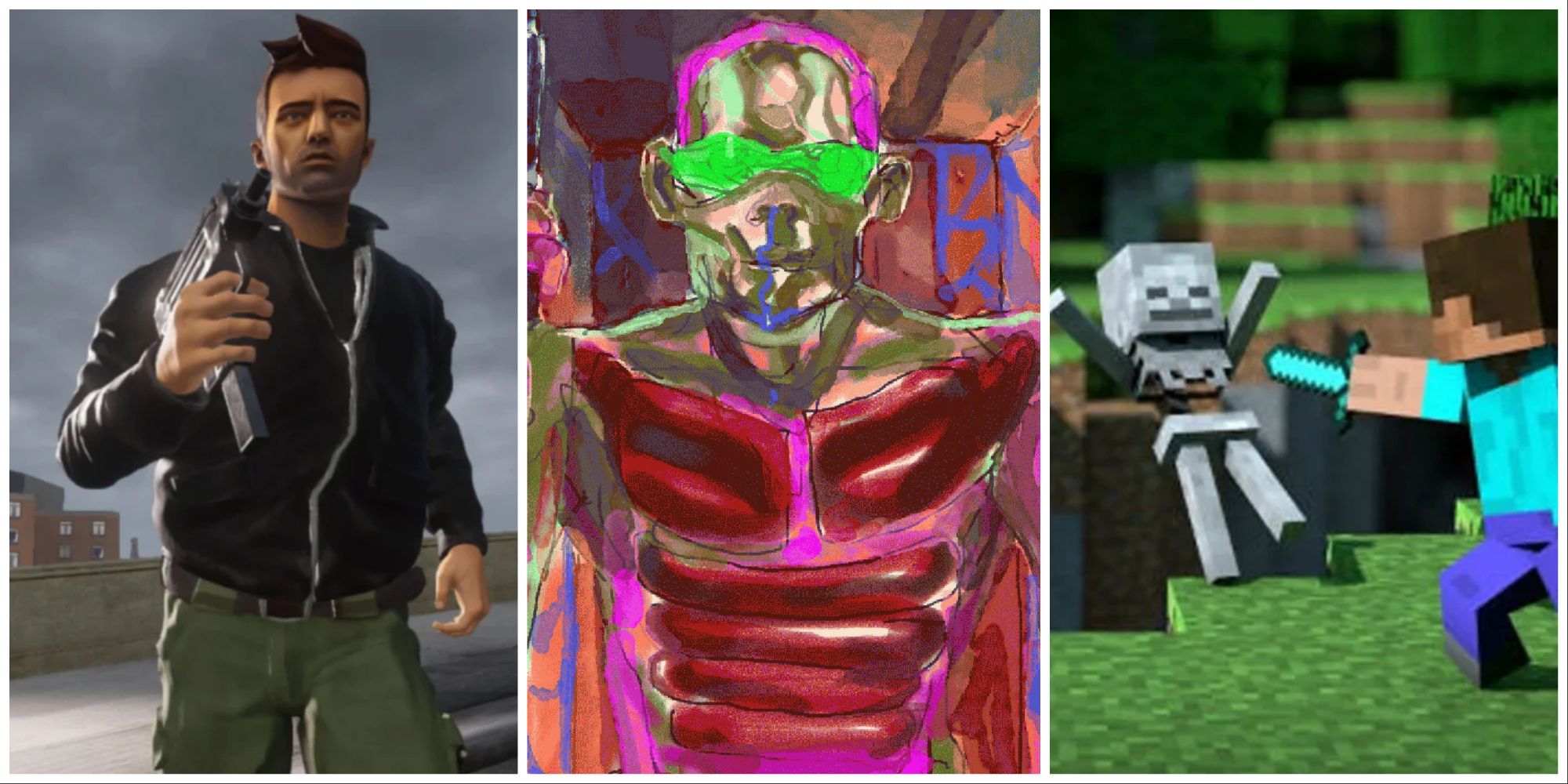
The Best Games With The Worst Graphics
These legendary games aren't exactly known for their stellar graphics...
However, player–player trading has its dark underbelly. Some gamers have abused this feature to trade gold and items for real money, despite Jagex's attempts to prevent it. In 2008, an update made it impossible for one player to gift large sums or valuable items to another. While this did help to combat scams and real-world trading, it annoyed many innocent players.
6 Shooting Stars Update
September 20, 2023
Like all video games, both versions of RuneScape are made up of vast numbers of interlocking systems. The most simple relationships, such as the Fishing skill feeding into the Cooking skill, are fairly simple to account for when implementing new content. However, even the most mundane alterations can sometimes have far-reaching effects, as in the case of the 2023 Shooting Stars update for Old School RuneScape.
Shooting stars fall around Gielinor and, once located, can be mined for AFK experience and rewards. Changes to the feature caused players to flock to worlds where stars had landed, putting unforeseen amounts of stress on Old School RuneScape's servers. The resulting lag spikes were devastating for certain gamers and resulted in the tragic deaths of several Hardcore Ironmen (players who strive to face the game's toughest challenges without ever being killed).
5 Zeah
January 7, 2016
All gamers are familiar with overambitious projects failing to deliver, with No Man's Sky being perhaps the most obvious example. Old School RuneScape had its own scandal with the continent of Zeah, a major update that flopped when it debuted in 2016. Zeah had an ambitious mandate: to double the size of the Old School RuneScape map, add new NPC favor systems, and introduce the game's first raids.
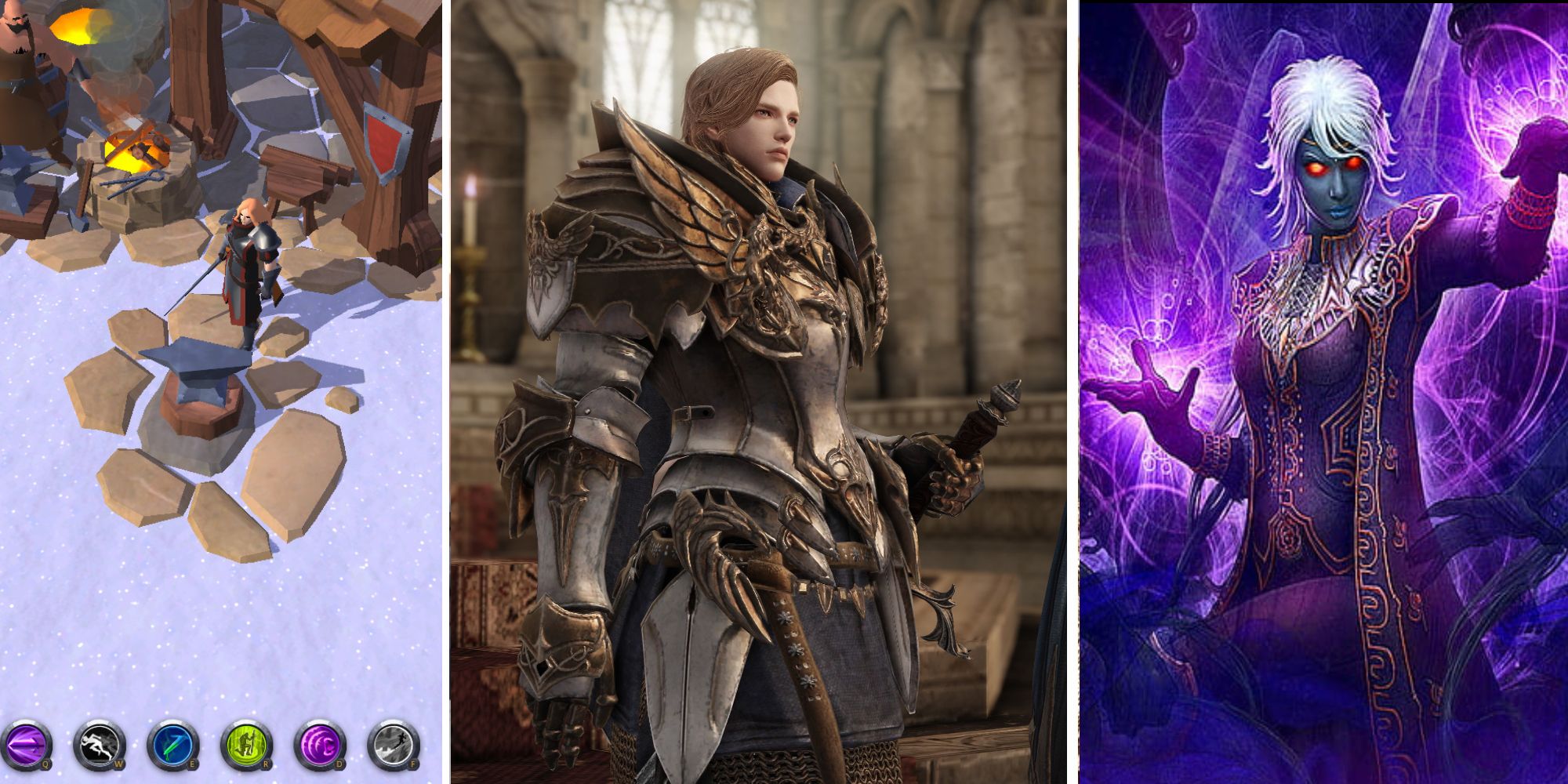
7 MMORPGs With Great Loot Systems
MMORPGs all follow similar game designs, but the looting systems can differ greatly, and some are definitely better than others.
With only a handful of people working on the project, disappointment was inevitable. On release, Zeah was a barren wasteland, the favor system was poorly implemented, and the promised raids were absent. However, like No Man's Sky, Zeah improved with time. The popular Windertodt skilling boss was introduced, the map and favor scores were reworked, and the Chambers of Xeric raid offered players a real challenge when it dropped in 2017.
4 Wilderness Changes
December 10, 2007
The Wilderness is one of RuneScape's most iconic areas. This sprawling wasteland was once a lush, fertile place, but the destruction wrought by warring gods transformed it into a deadly region where players fight tooth and claw to assert their dominance. Given the area's PVP focus, it's unsurprising that it's been at the center of numerous update-related scandals.
In early 2007, the Wilderness Ditch was introduced to stop PVPers from luring unsuspecting prey into the Wilderness. Later that year, Jagex removed the PVP elements of the Wilderness completely, sparking outrage from the game's more murderous players. The change was intended to combat real-world trading, but it was widely seen as robbing the game of one of its most distinctive pieces of content. A 2011 update then restored players' ability to fight in the Wilderness. However, despite numerous attempts to draw players back to the region, the wasteland is now a shadow of its former self in both RuneScape 3 and Old School.
3 Squeal Of Fortune
February 28, 2012
Both versions of RuneScape are full of terrifying foes, from the powerful TzTok-Jad to the residents of the icy God Wars Dungeon. However, few things scare Gielinor's adventurers as much as microtransactions, which much of the player base considers detrimental to the RuneScape experience. As such, the 2012 debut of the Squeal of Fortune, a gambling-adjacent activity in which gamers could pay real money for a chance to win in-game items, drew widespread condemnation until its removal in 2014.
While the demise of Squeal of Fortune did not remove microtransactions from RuneScape 3, developer Jagex did offer the players an olive branch of sorts. "The Mighty Fall," a quest released in 2014, allowed gamers to vent their rage by killing Yelps, the Squeal of Fortune's Goblin proprietor, although pay-to-win features lived on in the form of the Treasure Hunter activity.
2 Hero Pass
September 4, 2023
Since the introduction of the Squeal of Fortune in 2012, RuneScape 3 has always contained elements that might be considered pay-to-win. However, few were as egregious or impactful as 2023's Hero Pass update, which saw many players quit the game entirely and others make the switch to Old School.
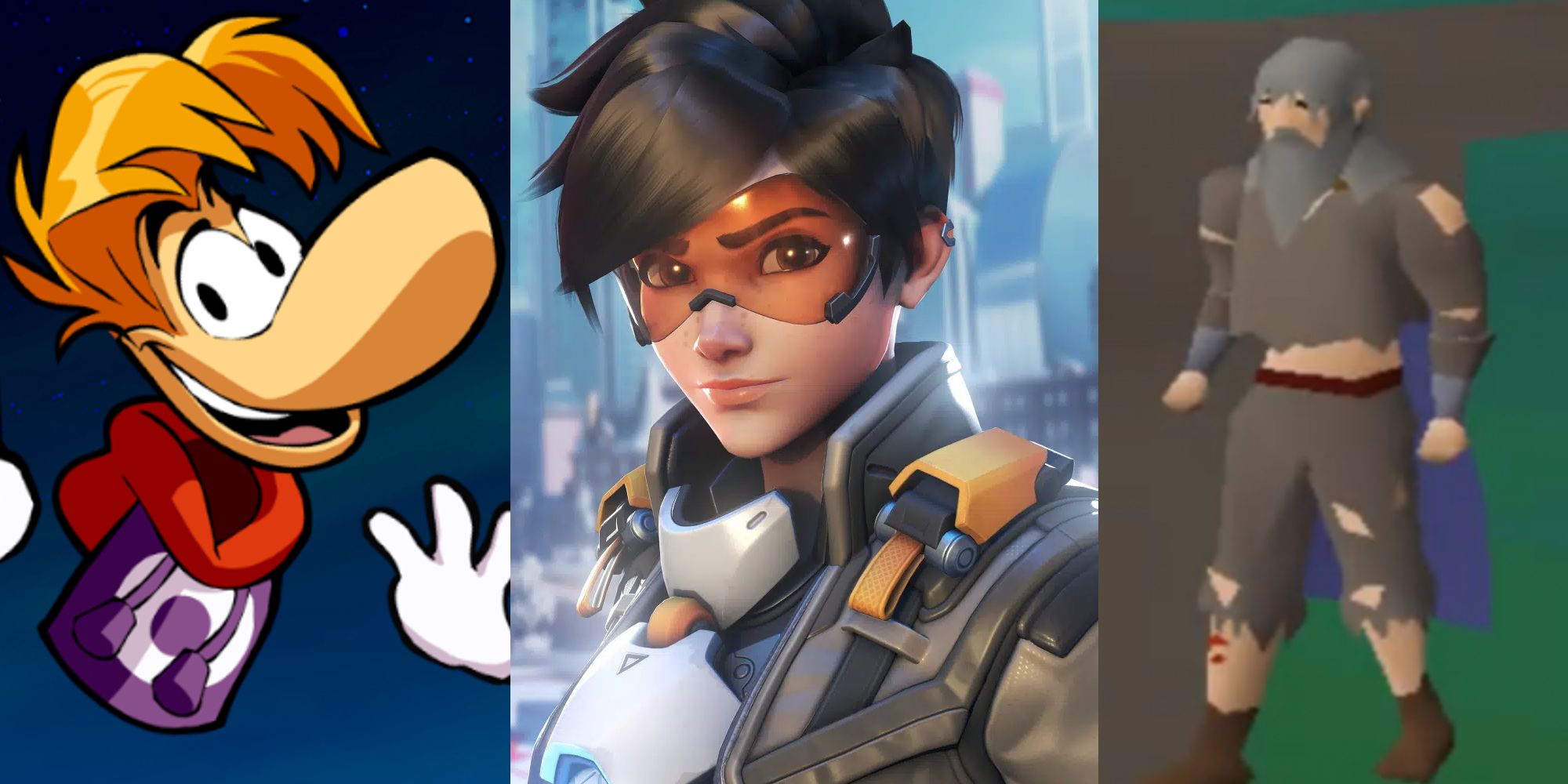
8 Free Steam Games That Will Put A Smile On Your Face
Players will be happy to know that several enjoyable games on Steam can be experienced without paying a dime.
Hero Pass was meant to reward players for putting time into the game, but its extensive microtransactions made it a sink for gamers' real-world cash. The outcry caused Jagex to alter its plans. Soon after Hero Pass was released, the developers announced their intention to remove it. Although the crisis was averted, the loss of players' trust and the damage to Jagex's reputation were significant.
1 Evolution Of Combat
November 20, 2012
According to an ancient Mayan prophecy, the world was due to end in 2012. Although the real world made it through the year more or less unscathed, the same cannot be said for the realm of Gielinor. The Evolution of Combat update scandalized the community by transforming RuneScape's classic point-and-click combat into a World of Warcraft-style mess of abilities and hotbars.
The changes in combat mechanics sent shockwaves through both the player base and the game's market. Riots broke out in major cities; social media exploded with complaints; gamers quit en masse. A quarter of players left outright, while the release of Old School RuneScape saw a mass exodus to the classic variant of the game. The Evolution of Combat update was designed to revolutionize the way that players killed RuneScape's monsters—instead, it nearly killed the game.

